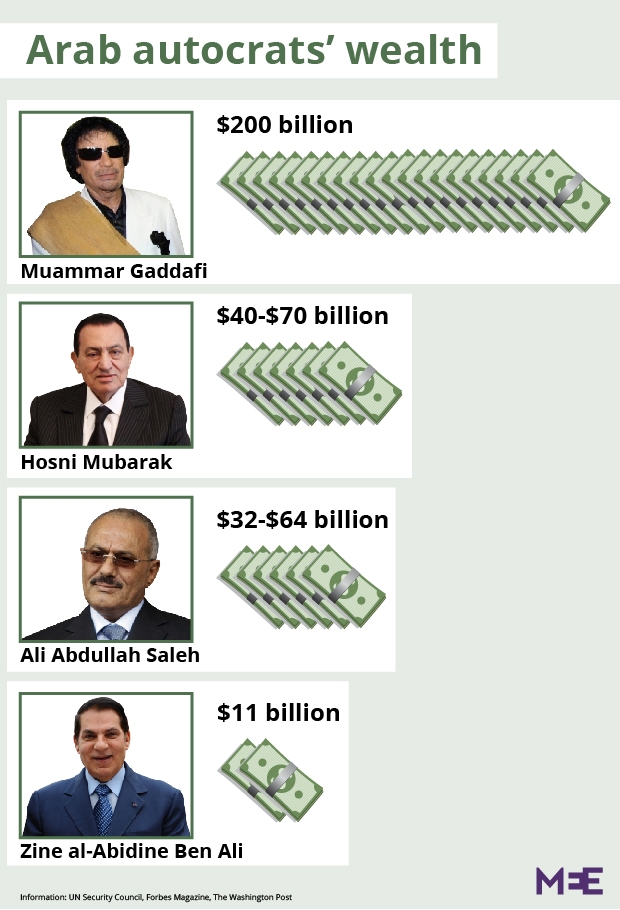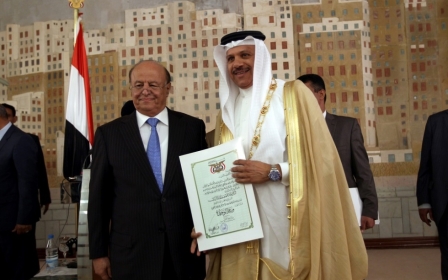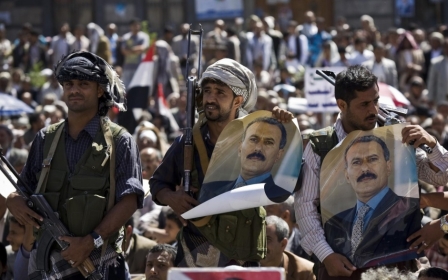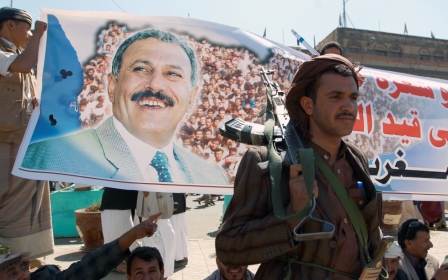Is Yemen's Saleh really worth $64 billion?
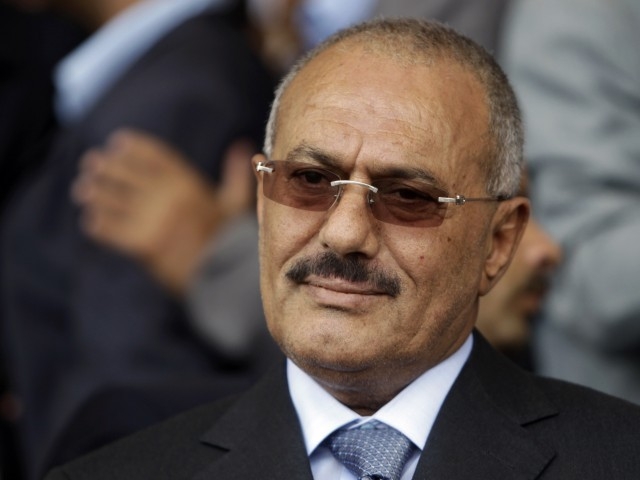
Amidst a raft of allegations of political manipulation, including aiding the overthrow of Yemen's government last month, a report presented to the United Nations Security Council yesterday said that Yemen’s former president, Ali Abdullah Saleh, has amassed a personal fortune of between $32bn to $64bn.
Quoting unnamed government sources, the report that was compiled by a panel of four experts, said that during his 33-year-rule Saleh may have netted up to $2bn a year – a significant portion of the country’s GDP which averaged $11.5bn between 1990 and 2013, according to the World Bank.
"[Saleh] is alleged to have amassed assets between $32bn and $60bn ... partly from his corrupt practices as President of Yemen, particularly relating to gas and oil contracts where he reportedly asked for money in exchange for granting companies exclusive rights to prospect for gas and oil," write the experts who monitor violations of UN sanctions on Yemen.
Most of this wealth was believed to have been transferred abroad under false names or the names of others holding the assets on his behalf, the report said. It took the form of property, cash, shares, gold and other valuable commodities, and was believed to spread across at least 20 countries.
“It is also alleged that Ali Abdullah Saleh, his friends, his family and his associates stole money from the fuel subsidy program, which uses up to 10 per cent of Yemen’s gross domestic product, as well as other ventures involving abuse of power, extortion and embezzlement,” the report adds.
If the upper limit of the estimate of his wealth is true, Saleh would be considered the world’s fifth richest person in the Forbes Magazine rich list, coming in above Oracle CEO Larry Ellison who has an estimated worth of $54.1bn and just below Spanish retail mogul and Zara founder Amancio Ortega, who is worth an estimated $67bn.
Even at the bottom end of the wealth scale though, Saleh would be the world 18th richest man and be wealthier than famed Casino mogul Sheldon Adelson who has an estimated net worth of $29.6 bn.
Saleh would also rank above the Middle East's wealthiest businessperson, Saudi Arabia’s Prince Alwaleed Bin Talal al-Saud, whose empire is valued at $22.9bn. Alwaleed, however, claims that Forbes has undervalued his fortune and that he is $10bn wealthier.
As outrageous as Saleh’s alleged wealth might seem, it is in fact well below what other Arab leaders are thought to have accumulated during their years in power.
Muammar Gaddafi, who ruled oil-rich and relatively sparsely-populated Libya for more than 40 years, was thought to have hoarded as much as $200bn before being ousted in 2011.
This, according to Forbes, would have made him richer than the world’s two richest men - Microsoft founder Bill Gates ($79.4 bn) and Mexican telecoms magnate Carlos Slim Helu ($75.9 bn) – combined.
Gaddafi would have also been worth more than the whole GDP of the Chez Republic, which raked in $194bn in 2013, and even oil-rich Kuwait that brought in $179.5bn, according to the CIA Factbook.
Egypt’s Hosni Mubarak and his family, also ousted in 2011, were said to have a fortune worth between $40bn and $70bn, some experts said, although estimates fluctuate wildly and Forbes said the figure was inflated.
The Washington Post later said Mubarak could have had a staggering $700bn worth of holdings made up of “cash, gold and other state-owned valuables” including “75 tons of Egyptian gold held by the US Federal Reserve” exceeding Egypt’s GDP of about $500bn.
In comparison, former Tunisian strongman Zine al-Abidine Ben Ali’s fortune, estimated to be at $11 bn and allegedly accumulated over more than 20 years in power, seems like a drop in the ocean.
But these estimates are not without their problems. Much of the money is holed up in private bank accounts, often overseas. Also included in these figures are state-owned funds which despite skimming and manipulation, never officially belonged to the ruling families of the Middle East.
Forbes has long recognised the discrepancy and openly shied away from comparing monarch and rulers to the other ultra-rich listed in its reports, although it admits that many monarchs and statesmen who do not appear would likely have 11-figure fortunes.
The LA Times’ claim that Gaddafi had $200bn, for example, is difficult to assess because it included many holdings that, at least officially, belonged to the Libyan Central Bank and Libya’s sovereign wealth fund, the Libyan Investment Authority.
Forbes also questions the true value of companies with close links to the ruling elite. According to the magazine, Prince Alwaleed’s share price routinely defied global markets, rocketing shortly before the lists were calculated, only to go back down.
While the UN report did raise suggestions of how Saleh accumulated his vast wealth, it is still unclear how much was allegedly stolen and how, and crucially where, much of this cash might be hidden.
New MEE newsletter: Jerusalem Dispatch
Sign up to get the latest insights and analysis on Israel-Palestine, alongside Turkey Unpacked and other MEE newsletters
Middle East Eye delivers independent and unrivalled coverage and analysis of the Middle East, North Africa and beyond. To learn more about republishing this content and the associated fees, please fill out this form. More about MEE can be found here.


